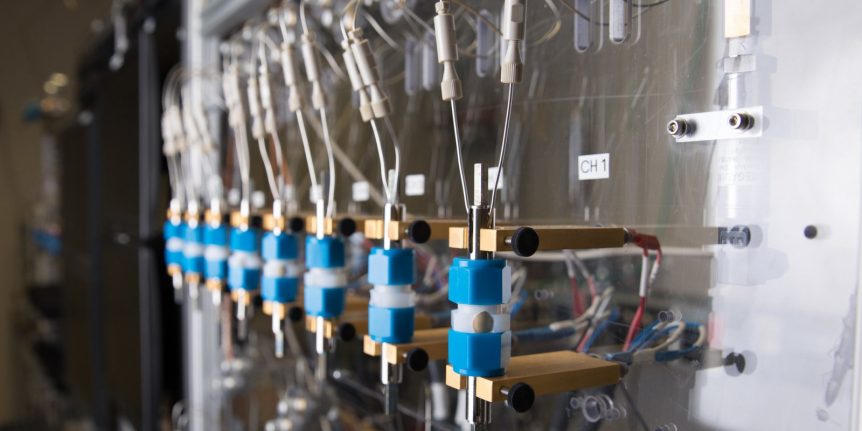Dr. Jangwoo Kim has a resume’ that puts a great many qualifications together that spell “battery designer.” He has a B.S. degree in chemical engineering from Yonsei University, one of three “Sky Universities” regarded as South Korea’s most prestigious. At Cornell University, he received M. S. and Ph.D degrees in chemical engineering, and then worked for LG Chem on lithium-ion battery pack design. After that, he returned to Cornell to work on his Ph.D, investigating “next-generation rechargeable battery technology, including Li-Air and Li-Sulfur, specialized in inorganic nanomaterial synthesis and polymer processing via an electrospraying method.” He joined IBM Research, Almaden Research Center in 2016 and participated in the Battery 500 project, aiming to build a battery pack with a specific energy of 500 watt-hours per kilogram. We see the project leader, Dr. Winfred Wilcke, in a short video about that project. Battery 500 intended to reduce or eliminate heavy metals such as cobalt from the cells. Cobalt is not rare, but …
Tag Archive
Below you'll find a list of all posts that have been tagged as “IBM Battery 500 Project”

